Information for relatives of victims of Nazi persecution
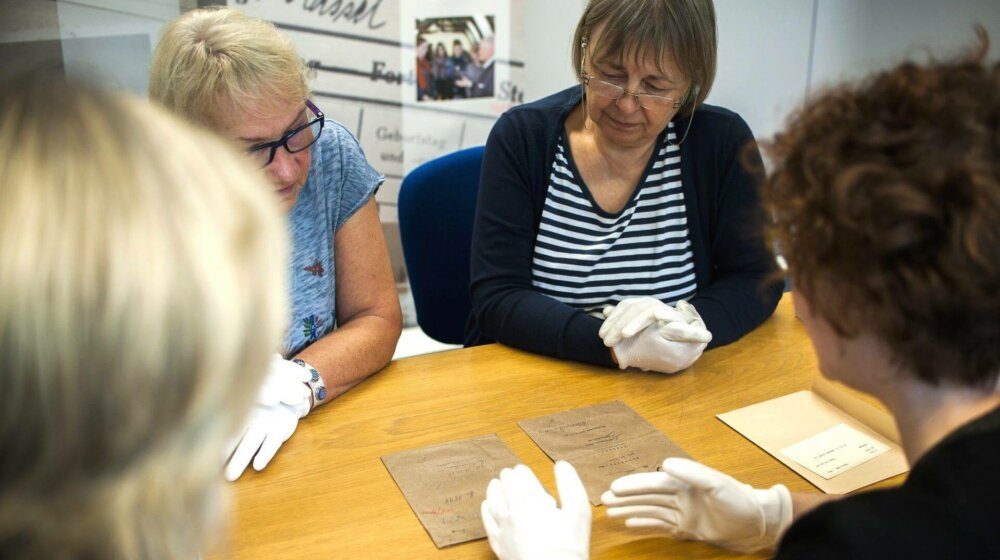
Many families still do not know what happened to their relatives after they were deported. But family history is enormously important when it comes to making room for remembrance.
The Arolsen Archives research paths of persecution, help search for graves and, even today, unite families who were torn apart by the Nazi regime. Year after year, we receive inquiries about more than 20,000 people; about two thirds of these inquiries come from relatives. The numbers remain high, even though it is now rare for survivors themselves to contact the Arolsen Archives. Today, most search requests come from the generations of the children and the grandchildren. The trauma experienced by their relatives affects them today, all these years on. Finding out more about the past, helps them to find their roots and better understand their family history. Survivors often could not or would not talk about their experiences of Nazi persecution. Sometimes family secrets may also be involved, such as children born out of wedlock or families who were left behind. After the death of the generation of their parents or grandparents, many people feel a deep-seated need to look closely into the past and use every opportunity to find traces of their own family history or missing relatives.
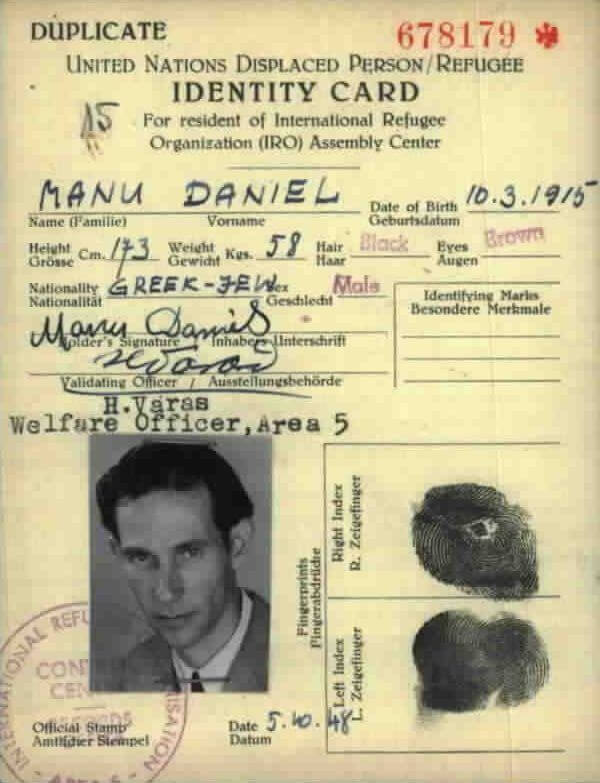
»There are no documents, no photos, no clothes, no toys, absolutely nothing from before and during the Shoah. For this reason, the three copies from the time of my father’s concentration camp imprisonment are of special importance to me. These are the only three documents of his entire life prior to his liberation.«
René Manu, Son of Daniel Manu, a Greek Jew from Thessaloniki. The National Socialists brought him and his whole family to the concentration and extermination camp Auschwitz-Birkenau. Daniel Manu was the only one to survive.
How do the Arolsen Archives respond to inquiries?
We can respond to more than 50 percent of all inquiries with information based on the documents in our archive. People who send us an inquiry receive copies of the documents concerned complete with explanatory notes at the bottom edge of the image. Where did the document come from, why was it issued? The notes explain this this and much more. We will also send you tips and addresses for further research. If you would like more information, please do not hesitate to contact us: we will send you an evaluation of the documents on request.
If the archive does not contain any relevant information, we will do our utmost to give you useful tips on other archives, authorities, administrations and memorials who might be able to help you in your research.
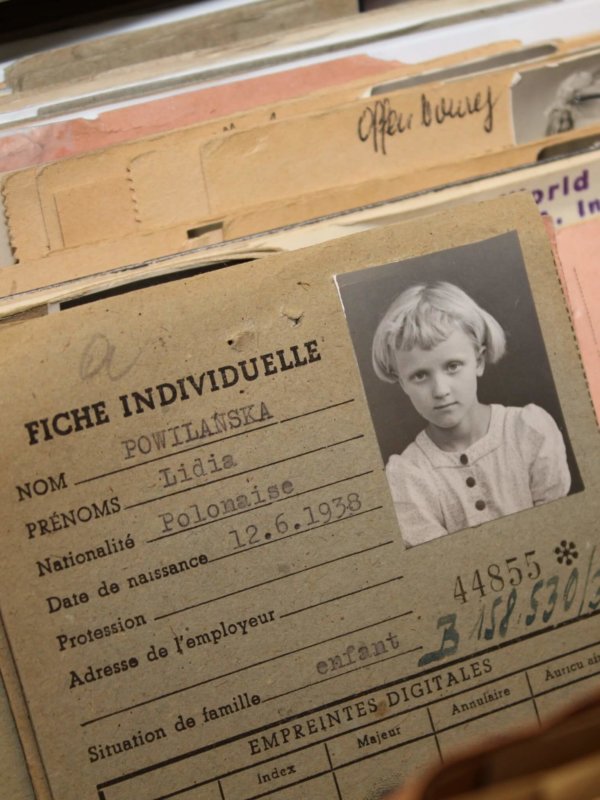
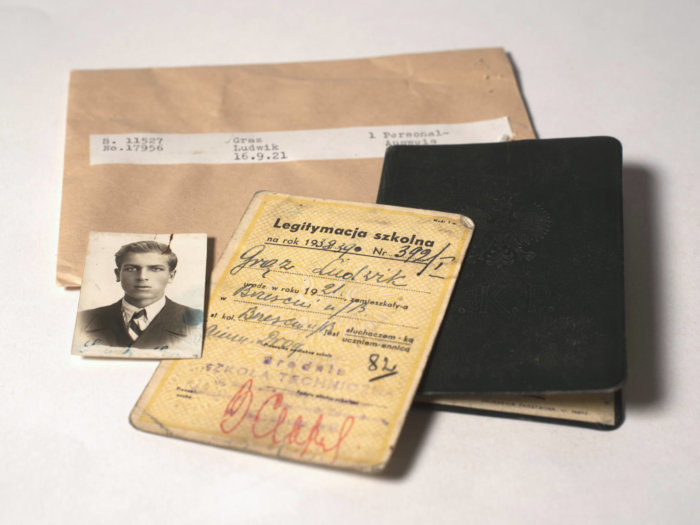
We cannot always answer inquiries in your native language. As well as answering in German, we can also answer in English, French, Polish and Russian.
Inquiries from Central and Eastern Europe
National Socialist terror hit the people of Central and Eastern Europe particularly hard. Not least because of the east-west conflicts of the post-war period, it was impossible for many families to search for missing relatives who had been exploited as forced laborers or deported to concentration camps. In order to draw the attention of families affected to the research services provided by the Arolsen Archives, we are working with a number of partner institutions as well as with the media. The #StolenMemory exhibition and campaign also gives us the opportunity to find new partners and make the archive better known as we research in different countries. We are particularly keen to help family members from Central and Eastern Europe to finally find the information they have long been searching for: this could be information about the path of persecution, information on where their relatives died and were buried or information related to an active search for other relatives.
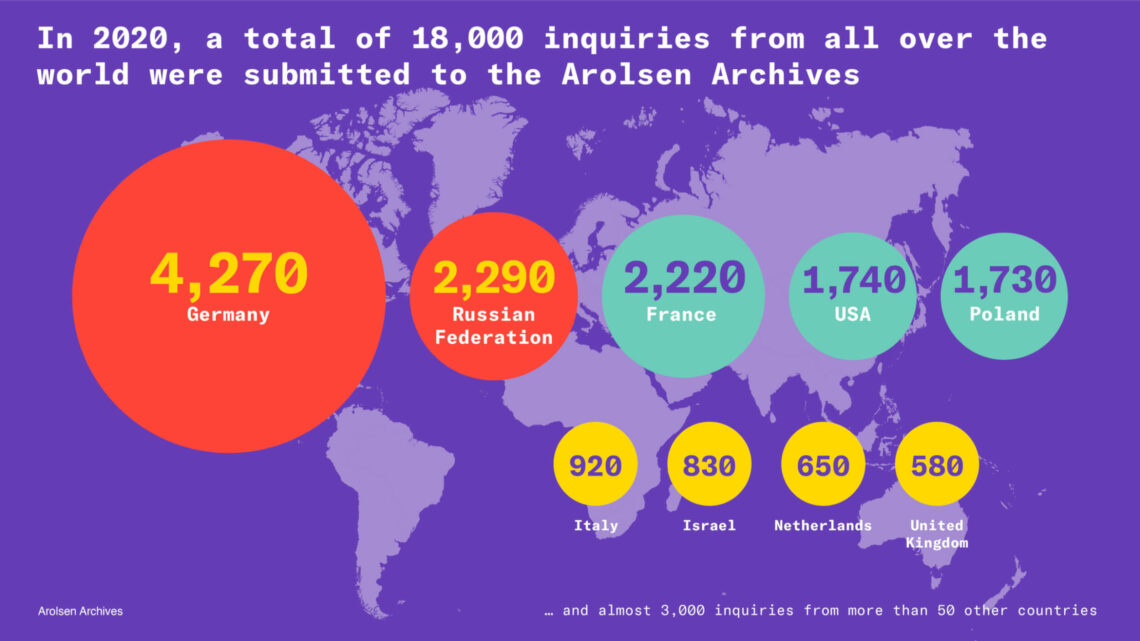
FAQ
We receive inquiries about more than 20,000 people every year. As a rule, we process inquiries in the order we receive them. However, we give preferential treatment to inquiries from survivors, inquiries from elderly or ill relatives, and inquiries of an urgent nature.
We have recently succeeded in significantly reducing our processing times, so you should normally hear back from us within a few weeks. However, it can take much longer if we are searching for family members or helping families to find a grave, as these activities may involve lengthy research.
Nearly all the documents in our archive have already been digitized, so our staff can search the holdings with the aid of a PC. They also take into account variant spellings and contradictory information on the person who is the subject of the inquiry. If you find out any more information at a later date, we are happy to repeat the search on the basis of the new data. Please use our online form to send us a new inquiry.
Not only do our documents provide information on persecution, imprisonment and forced labor between 1933 and 1945, they also include holdings from the post-war period which document the assistance provided by the Allies and the emigration of former concentration camp prisoners and other victims of persecution. Nowadays, the inquiries we have received over the past seven decades are another important source of information: these T/D (Tracing/Documentation) files document the efforts made by millions of people to find relatives and friends again after the war or to obtain certification of the path of persecution. They also often contain important information about the whereabouts of victims of persecution after liberation.
Anyone who contacts the Arolsen Archives today will receive free copies of all the documents available. Our documentary holdings are growing all the time and will continue to do so in future, so sending us another inquiry can give you a second chance, especially if you are looking for relatives. Search requests which turned out unsuccessfully in the past can yield positive results today. The availability of new documents and the expansion of our tracing work to cover Central and Eastern Europe have made this possible. A second inquiry is certainly worthwhile.
No, but we can refer you to other archives, memorials, public authorities and databases. This often helps families in their search for information, even if there aren’t any documents in the Arolsen Archives. We do not conduct additional research in specialist publications or literature of remembrance.
In general, the Arolsen Archives provide information free of charge to families who are looking for information about a relative or seeking to contact a relative.
The “Sonderstandesamt” (special registry office) in Bad Arolsen issues death certificates for deaths in the former German concentration camps on the basis of our documents:
Stadt Bad Arolsen
Sonderstandesamt
Große Allee 26
34454 Bad Arolsen
Deutschland
Tel.: +49 5691 801183
Sonderstandesamt@Bad-Arolsen.de
The “Sonderstandesamt” itself does not have any further documents or information.
The Arolsen Archives issue certification on the basis of the documents available. However, we are not a compensation authority. If, when we process your inquiry, we discover that it is an earlier compensation case, we will send you all the available documents and refer you to the competent authority. For current questions on compensation for Nazi injustice, pension payments or other property issues, please contact the inquiry office of the “Bundesfinanzdirektion West” (Federal Finance Office West):
Generalzolldirektion in Köln
Referat Zentrale Auskunftsstelle zur Wiedergutmachung nationalsozialistischen Unrechts
Neusser Straße 159
50733 Köln
Tel. +49 221/379930 oder +49 221/37993413
Fax. +49 221/37993742
heinz.langkau@zoll.bund.de
BUNDESVERBAND INFORMATION & BERATUNG
FÜR NS-VERFOLGTE e.V.
Genovevastraße 72
51063 Köln
Tel. +49 (0)221 17 92 94 14
Fax. +49 (0)221 17 92 94 29
www.nsberatung.de

